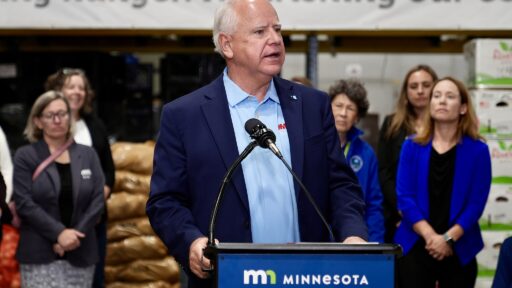Elizabeth Warren Snaps On Trump
Senator Elizabeth Warren (D-Mass.) has recently criticized former President Donald Trump for allegedly shifting his stance on in vitro fertilization (IVF) based on his audience. Warren argues that Trump’s comments reveal a troubling inconsistency in his approach to IVF, accusing him of tailoring his rhetoric to suit either his core supporters or the broader American public.
During her appearance on MSNBC’s “The Weekend,” Warren suggested that Trump adjusts his position depending on whether he is speaking to his “radical base” or to a more general audience. She accused him of making extreme statements to appease his base, only to reverse course when addressing the wider public, who may not support such radical views on reproductive issues. Warren emphasized that Trump’s attempt to appear supportive of IVF while simultaneously endorsing policies that could restrict it shows a lack of genuine principle.
In response to recent comments from Trump, where he promised to protect IVF and ensure that either government or insurance companies would cover the costs, Warren dismissed these assurances as insincere. Trump’s stance on this issue, she argued, is inconsistent with his platform, which includes positions that could ultimately restrict access to IVF.
Vice President Kamala Harris’s campaign, along with other critics such as Gwen Walz, the wife of Minnesota Governor Tim Walz, has also condemned Trump’s statements. They argue that Trump’s record on reproductive rights, including his role in overturning Roe v. Wade, puts IVF access at risk. Walz pointed out that Trump’s platform could endanger IVF treatments nationwide.
Republican Senator Markwayne Mullin (Okla.) raised concerns about how Trump’s proposal for funding IVF treatments would be implemented. On CNN, Mullin questioned the financial feasibility of Trump’s plan, highlighting the complexities involved in funding such initiatives.
This debate underscores the ongoing tension surrounding reproductive rights and the financial implications of healthcare policies, with differing views on how to best address these critical issues.







